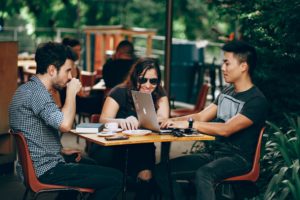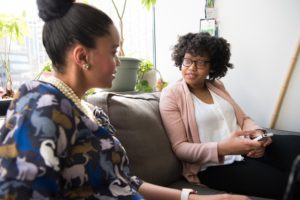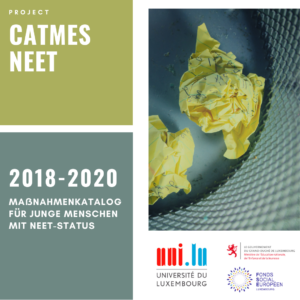After two years, the CatMesNEET project has been successfully completed since December 2020. CatMesNeet is a catalog of all assistance measures for young people in a NEET situation in Luxembourg. NEET stands for the diverse group of people who, for various reasons, find themselves neither in further vocational training nor in employment after leaving school.
Interviewing Dr. Josepha Nell (DG Jeunesse, MENJE), we learned how the scientific findings of the project can serve society in the future. After its completion, researchers from the Centre for Childhood and Youth Research (CCY) at the University of Luxembourg handed over the project to the Ministry of Education. The plan is to make the collected data available to employees in the youth and social work sector. In the long term, the catalog of measures will also be of help to young people themselves; then even as an app for cell phones.
Infobox – knowledge transfer
The CatMesNEET project is an example of how science can support the work of public and government institutions: The project was handed over to the Ministry of Education after its completion in 2020. There, the data will be further processed and revised.
The goal is to create a catalog that is accessible to youth workers and social workers who work with young people. In addition, the adapted catalog is to be made directly available to young people as an app.
The project also shows how much time it takes for the findings of solid, scientific work to take root in practice. Long-term project funding and collaborations thus remain indispensable for a public sector that shapes evidence-based policy.
Funding
CatMesNEET was funded in equal parts by the Fonds social européen (FSE) and by the Ministère de l’Education nationale, de l’Enfance et de la Jeunesse (MENJE). Scientific project leader: Robin Samuel; participating scientists: Josepha Nell, Elisabeth Scheier, Michaela Zuniga.





